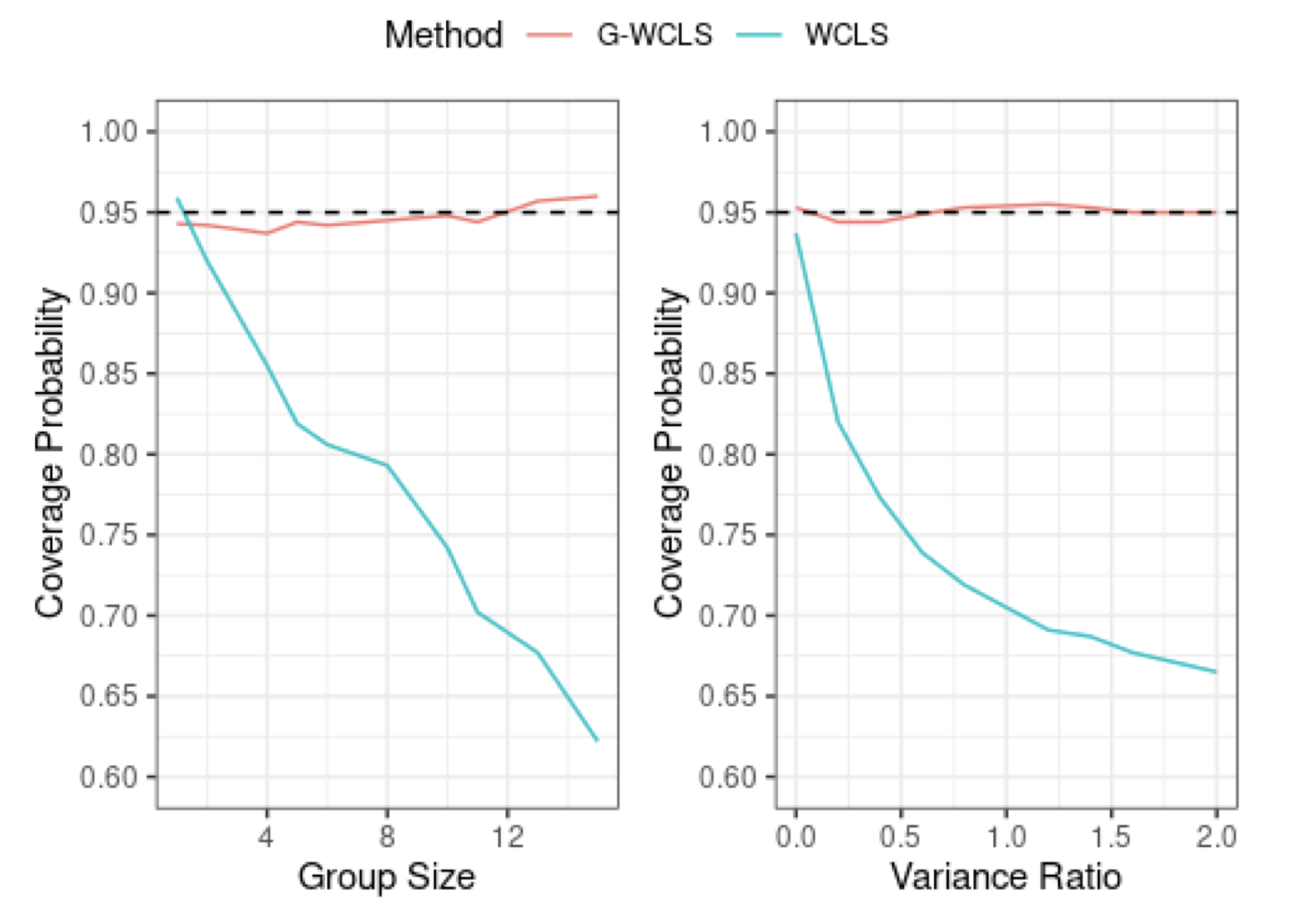Abstract
The micro-randomized trial (MRT) is a sequential randomized experimental design to empirically evaluate the effectiveness of mobile health (mHealth) intervention components that may be delivered at hundreds or thousands of decision points. MRTs have motivated a new class of causal estimands, termed “causal excursion effects”, for which semiparametric inference can be conducted via a weighted, centered least squares criterion (Boruvka et al., 2018). Causal excursion effects allow health scientists to answer important scientific questions about how intervention effectiveness may change over time or may be moderated by individual characteristics, timevarying context or past responses. Existing definitions and associated methods assume betweensubject independence and non-interference. Deviations from these assumptions often occur. In this paper, causal excursion effects are revisited under potential cluster-level treatment effect heterogeneity and interference, where the treatment effect of interest may depend on cluster-level moderators. Utility of the proposed methods is shown by analyzing data from a multi-institution cohort of first year medical residents in the United States.
Keywords Causal Inference; Clustered Data; Just-In-Time Adaptive Interventions; Microrandomized Trials; Mobile Health; Moderation Effect
